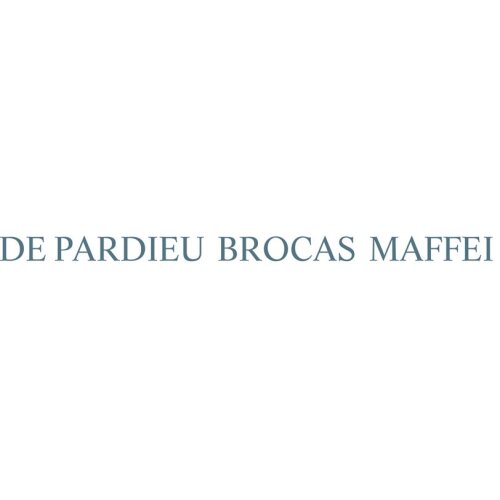Best ESG Advisory & Compliance Lawyers in France
Share your needs with us, get contacted by law firms.
Free. Takes 2 min.
Or refine your search by selecting a city:
List of the best lawyers in France
About ESG Advisory & Compliance Law in France
Environmental, Social, and Governance (ESG) advisory and compliance refers to the legal and practical measures organizations must take to align their activities with standards and regulations related to environmental sustainability, social responsibility, and effective governance. In France, ESG advisory and compliance law has become increasingly important due to national and European regulations that require companies to consider the impact of their operations on people and the planet, alongside traditional financial concerns. French law incorporates both domestic statutes and EU initiatives, meaning businesses must navigate complex obligations regarding transparency, reporting, stakeholder engagement, and risk management in areas such as climate change, human rights, and anti-corruption.
Why You May Need a Lawyer
Many individuals and organizations may require legal help concerning ESG advisory and compliance for several reasons. Companies expanding operations in France may need guidance on local ESG regulations to ensure lawful conduct and avoid penalties. Investors may seek legal support to assess ESG risks and compliance during mergers, acquisitions, or investment processes. Non-profits and advocacy groups might need advice on compliance and reporting obligations. Additionally, organizations facing ESG-related litigation or regulatory scrutiny can benefit from legal expertise in defense, negotiation, or remediation efforts. Legal professionals can decode complex laws, provide strategic assessments, draft policies, assist with mandatory disclosures, and represent clients before French authorities.
Local Laws Overview
France is recognized as a leader in ESG legislation. Notable laws include the Loi sur le devoir de vigilance (Duty of Vigilance Law), which requires large companies to establish vigilance plans to prevent violations of human rights and environmental harm throughout their supply chains. The Non-Financial Performance Declaration obliges certain companies to report ESG information annually. The Sapin II Law enhances anti-corruption measures, while environmental regulations are enforced in alignment with the Paris Agreement and EU directives. Additionally, executive remuneration and board diversity are governed by strict standards to ensure sound governance. Compliance is monitored by supervisory bodies such as the French Financial Markets Authority (AMF) and the European Securities and Markets Authority (ESMA) for EU-wide standards.
Frequently Asked Questions
What is ESG and why is it important in France?
ESG stands for Environmental, Social, and Governance. It refers to criteria that help organizations operate responsibly and sustainably. In France, ESG is crucial for legal compliance, reputation, and attracting investors.
Which companies are subject to ESG regulations in France?
Large French companies, especially those with more than 5,000 employees in France or 10,000 globally, are directly regulated. However, many mid-sized and smaller firms are impacted through supply chains or specific sectoral rules.
What are the main ESG reporting obligations in France?
Companies covered by the Non-Financial Performance Declaration must submit annual non-financial reports, outlining their environmental impact, social responsibility, and governance policies.
What is the Duty of Vigilance Law?
The Duty of Vigilance Law requires large companies to create and implement vigilance plans to prevent human rights abuses and environmental damage within their operations and supply chains.
Are there penalties for non-compliance with ESG laws?
Yes, non-compliance can result in administrative fines, civil liability, reputational damage, and in some cases, criminal prosecution depending on the infraction.
Is ESG compliance only about environmental issues?
No, ESG compliance also covers social matters such as diversity, labor rights, and public health, as well as governance issues like anti-corruption and transparency.
How is ESG compliance monitored in France?
Regulatory authorities such as the AMF oversee disclosures. Civil society groups and the courts also play a role, especially in cases brought under the Duty of Vigilance Law.
How can a lawyer help with ESG compliance?
Lawyers assist in evaluating compliance risks, drafting or updating internal policies, preparing reports, managing disputes, and representing clients in regulatory or court proceedings.
How do French ESG laws apply to foreign companies?
Foreign companies with significant operations or employees in France may be subject to French ESG laws, especially if they fall within the specified size thresholds.
What are the latest trends in ESG regulation in France?
Recent trends include increased focus on supply chain accountability, stricter climate change requirements, and enhanced transparency for executive pay and board diversity.
Additional Resources
Relevant resources for individuals and companies seeking more information about ESG advisory and compliance in France include the French Financial Markets Authority (AMF), the Ministry for the Ecological Transition, the European Securities and Markets Authority (ESMA), and professional associations such as the French Association of Corporate Governance (Afge). Law firms with ESG practices, business federations, and NGOs specializing in corporate responsibility can provide guidance, training, and legal updates on compliance requirements.
Next Steps
If you require legal support for ESG advisory and compliance in France, consider these steps. First, compile relevant documents such as organizational charters, past compliance reports, and existing policies. Assess whether you need strategic advice, regulatory compliance assistance, or representation in a specific matter. Contact a lawyer or law firm specializing in ESG compliance and provide them with a clear summary of your objectives and challenges. Schedule a meeting to discuss your situation and explore tailored solutions. Staying proactive is vital, as ESG law and expectations continue to evolve rapidly in France.
Lawzana helps you find the best lawyers and law firms in France through a curated and pre-screened list of qualified legal professionals. Our platform offers rankings and detailed profiles of attorneys and law firms, allowing you to compare based on practice areas, including ESG Advisory & Compliance, experience, and client feedback.
Each profile includes a description of the firm's areas of practice, client reviews, team members and partners, year of establishment, spoken languages, office locations, contact information, social media presence, and any published articles or resources. Most firms on our platform speak English and are experienced in both local and international legal matters.
Get a quote from top-rated law firms in France — quickly, securely, and without unnecessary hassle.
Disclaimer:
The information provided on this page is for general informational purposes only and does not constitute legal advice. While we strive to ensure the accuracy and relevance of the content, legal information may change over time, and interpretations of the law can vary. You should always consult with a qualified legal professional for advice specific to your situation.
We disclaim all liability for actions taken or not taken based on the content of this page. If you believe any information is incorrect or outdated, please contact us, and we will review and update it where appropriate.
Browse esg advisory & compliance law firms by city in France
Refine your search by selecting a city.
















